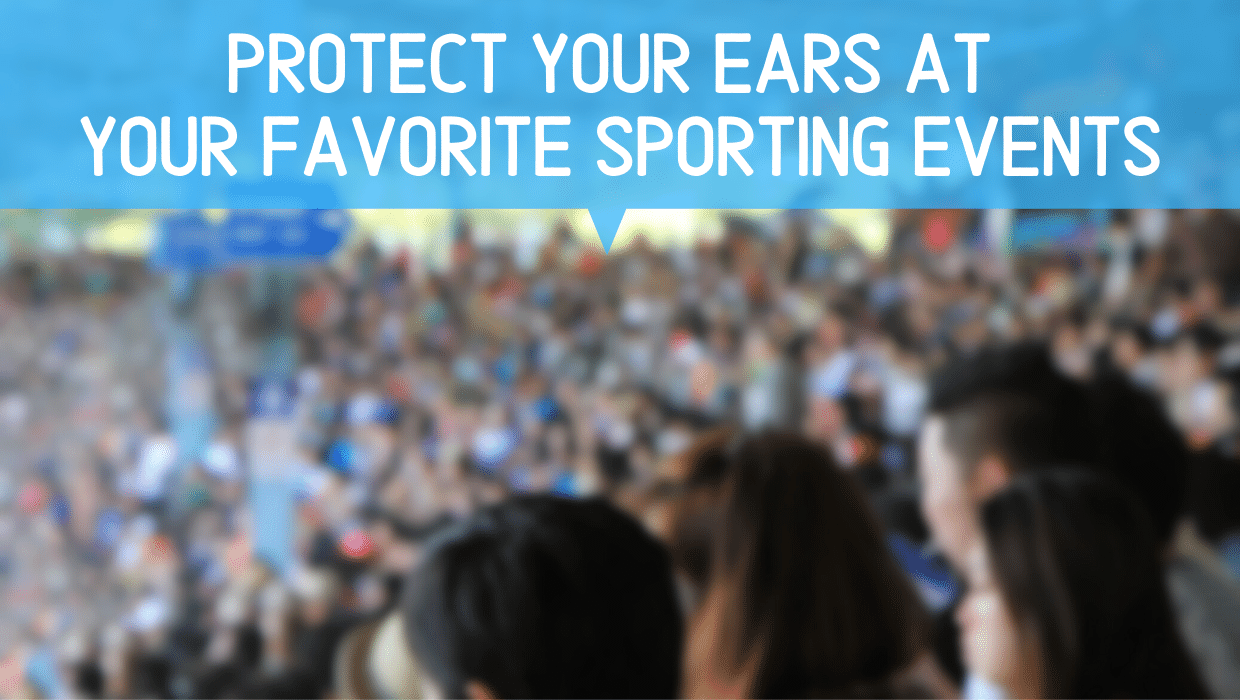
- How Spending Time Outdoors Enhances Hearing Health - July 16, 2024
- Exploring the Impact of Sports on Hearing Health - July 3, 2024
- The Impact of Diet on Hearing Loss - June 28, 2024
No matter what sport you love, be it football, basketball, or soccer, yelling and shouting for your favorite team is often one of the best parts of the game. It’s nice to watch sports on TV but the experience of seeing your team play in a giant stadium surrounded by hundreds of other sports fans is just exhilarating. There is a natural high that comes with this experience but even at your most enjoyable moments it’s important to be cautious. With the noise of a large stadium also comes the risk of serious hearing damage. The trouble with loud stadiums full of screaming fans, sports announcer or even fire works is that loud sounds can cause permanent hearing damage. This is referred to as noise induced hearing loss and precautions must be taken if you want to protect your ears from this.
Noise Induced Hearing Loss
Noise-induced hearing loss is caused by being around loud noises over a long period of time. It can also occur after you are exposed to loud noise in a short period of time, such as a sudden blast or gunshot. The more you are exposed to these loud noises the more of a risk it becomes to your ears. The loudness of a sound is measured in decibels, or dB and the higher the decibel and the longer, the worse the damage can get. For example, if you are exposed to loud sounds at work for 8 hours of exposure to 85 dB noise every day then this will wear on your ears overtime. If you use power tools, some of these machines can get as loud as 100 dB. If you attend a loud sports event then the decibels can rise to 120 dB and this can certainly damage your ears, especially if you attend regularly.
What causes noise-induced hearing loss?
Your inner ear is divided into 3 parts — the external, middle, and inner ear. The soft tissue of the inner ear is made of different types of fragile cells and nerves surrounded by tubes filled with fluid. The cochlea is a snail-shaped, fluid-filled structure in the inner ear. Inside the cochlea is another structure called the organ of Corti where fragile hair cells called cilia are located. These hairs pick up the sounds around us and transmit them to our brain via nerves. Hearing loss occurs when the cilia in the inner ear are damaged. When you expose your inner ear to loud sounds on a regular basis the fragile parts of the inner ear can be destroyed by continuous or repeated exposure to loud sounds. If enough cells and nerves are destroyed, then your hearing could be damaged permanently.
Protect Your Hearing
Protecting your hearing during sporting events doesn’t have to be expensive, or ruin the fun! It’s easy to protect your ears. Foam earplugs are available at most drug and convenience stores. If you wear them correctly cushioning your entire ear canal, foam earplugs can protect your ears from the roar of the crowd at your favorite sports event. It’s a good idea to have a few extra ready at any time for you and friends. You never know when loud noise will strike and once it does it’s best to be prepared. If you want to get even more serious about hearing protection, earmuffs can cost as little as $10, and will reduce sounds by around 20 dB. This is especially important if you are bringing children to sports events, as younger ears are more sensitive than adults.
Be Safe in Loud Crowds
An acoustical consultant tested the decibel levels at Century Filed during the Seahawks/Saints game in December 2019. The roar of fans at games marked Guinness World Record for loudest crowd noise at that game, hitting 137.6 decibel noise level, which is far above safe listening levels. When the Guinness World Record was set the sound of the crowd literately shook the ground! 137.6 decibels of is equal to a jet taking off which can cause immediate hearing loss if hearing protection is not being used. You don’t have to skip your favorite sports events to protect your hearing, just play it safe and make sure you wear earplugs to protect your hearing for the future!
